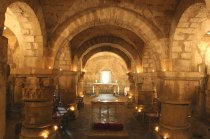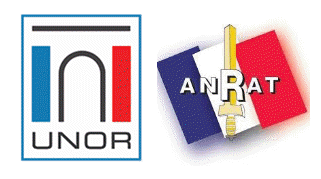Saint Cédric, patron des interprètes
Le 26/10/2024
Cedd ou Cedde, frère de Saint Chad.
Il fut élevé à Lindisfarne par saint Aidan. Il évangélisa les Saxons de l'Angleterre orientale et devint leur évêque. Il mourut de la peste à l'abbaye de Lastingham qu'il avait fondée dans le Yorkshire.
- Crypte saint Cedd, Lastingham (Yorkshire)
- Histoire de saint Cedd paroisse de Becontree (Dagenham) - site en anglais
Saint Cedd fut un interprète consciencieux et possédait des facilités pour l'apprentissage des langues. Ainsi, il pratiquait les langues gaélique, anglaise, francique, le gallois et le latin.
Ce qui lui vaut aujourd'hui le titre de Saint Patron des interprètes.
Il est aussi le Saint Patron du Comté d'Essex en Angleterre, et du village de Lastingham (North Yorkshire)."
"Il était fêté le 7 janvier jusqu'en 2005."
Il figure au 26 octobre au martyrologe romain: À Lastingham en Angleterre, l'an 664, saint Cedde, ordonné par saint Finian, évêque des Saxons de l'Est, il veilla à poser chez eux les fondements de l'Église.
Source: https://nominis.cef.fr/contenus/saint/383/Saint-Cedric.html
Cedd had been brought up in the Celtic Rite which differed from the Roman Rite, both in the accepted form of the tonsure (i.e. the shaven patch of scalp adopted by Christian monks) and in the method of calculating the date of Easter. These differences came to a head within the Northumbrian kingdom at a meeting known as the Synod of Whitby. The proceedings of the council were hampered by the participants' mutual incomprehension of each other's languages, which probably included Gaelic, Old English, Frankish and Early Welsh, as well as Latin. Bede tells us that Cedd was a conscientious interpreter for both sides. Cedd's facility with the languages, together with his status as a trusted royal emissary, must have given him a key role as a go-between in the negotiations. When the council ended, he returned to Essex. According to Bede, he accepted the Roman observance of Easter,[7] and returned to his work as bishop, abandoning the practices of the Scots - by which Bede means the Irish from the Kingdom of Dál Riata.
Source: http://www.stceddschurch.org/

